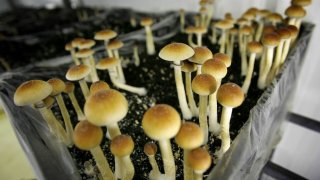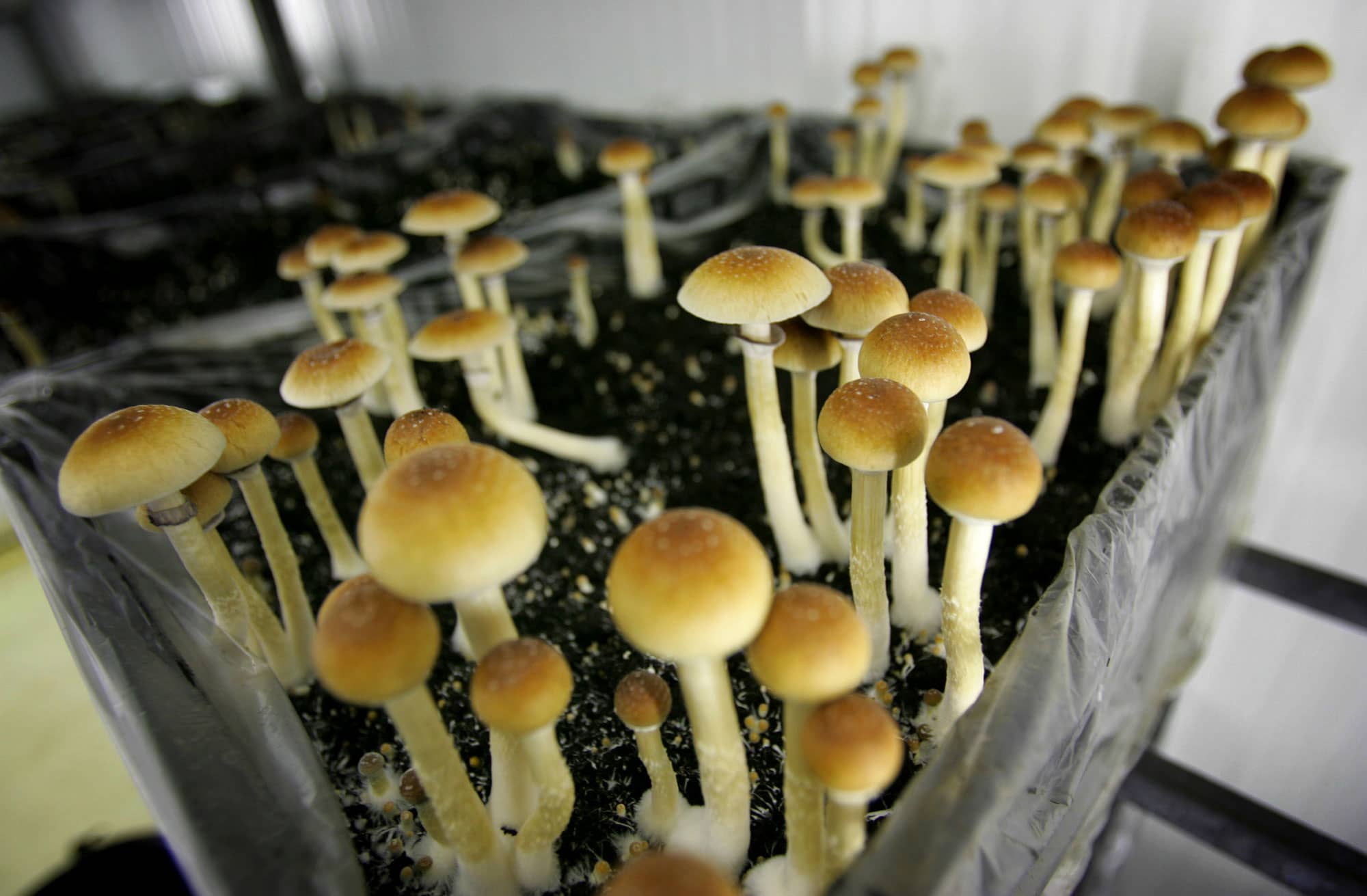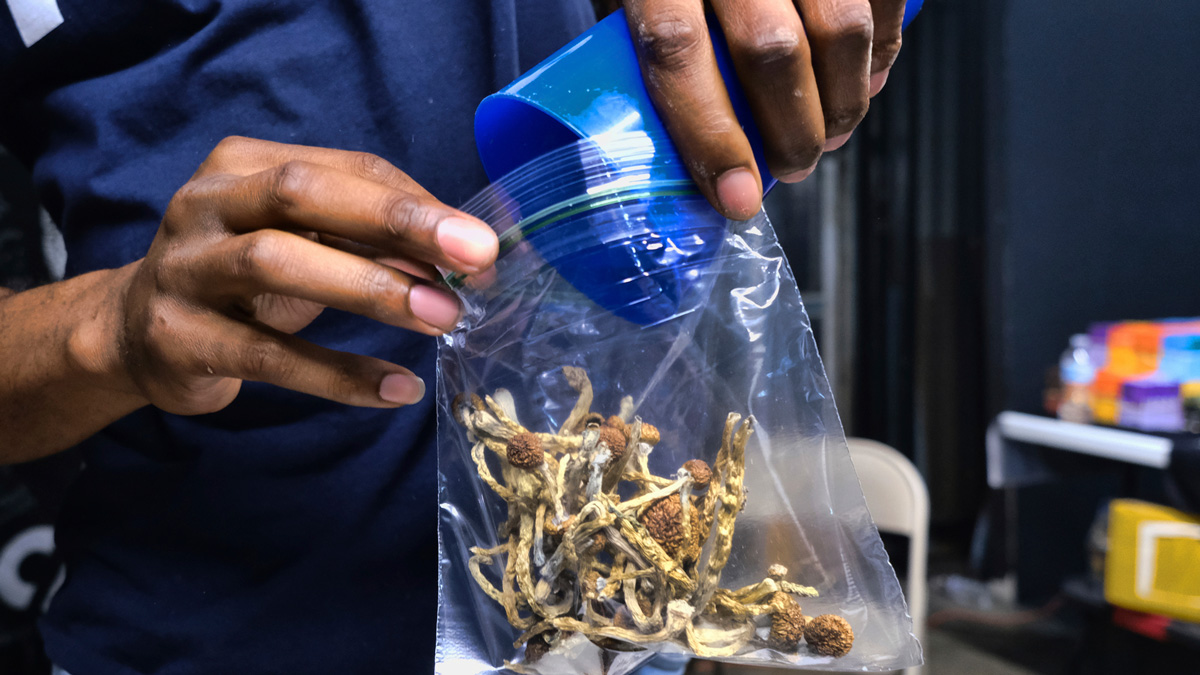
California on Tuesday moved another step closer to decriminalizing psychedelics — amid a debate over whether their prohibition is an outdated remnant of the War on Drugs — after the author removed a substance from the bill that opponents said can be used as a date-rape drug.
The bill would allow those 21 and older to possess for personal use and “social sharing” psilocybin, the hallucinogenic component of so-called magic mushrooms. It also covers psilocyn, dimethyltryptamine (DMT), ibogaine, mescaline excluding peyote, lysergic acid diethylamide (LSD) and 3,4-methylenedioxymethamphetamine (MDMA, often called ecstasy).
“People’s lives are literally transformed because of these substances," said Sen. Scott Wiener, a Democrat from San Francisco, though he amended his bill to remove ketamine from the list.
Keeping the potential date-rape drug “would have just confused what you ultimately want to get accomplished," said the Assembly Public Safety Committee’s chairman, Democratic Assemblyman Reggie Jones-Sawyer, who otherwise supported the bill.
Psychedelics have emerged as “an extremely promising approach to a variety of mental illnesses,” testified Dr. Robert Grant, who studies ketamine-assisted psychotherapy for depression and anxiety at the University of California, San Francisco, which is creating a research center in August to study their use. “Certainly people should not be incarcerated for seeking a healing path with these medications.”
The bill bars sharing with those under age 21 or possessing the substances on school grounds. It would remove the state's ban on cultivating or transferring mushroom spores or other material containing psilocybin or psilocyn.
Even if California makes the bill law, the drugs would still be illegal under federal law.
It cleared the Assembly Public Safety Committee, 5-3, with proponents touting the benefits to military veterans and others they say can benefit from the use of psychedelics to treat trauma. The measure already passed the state Senate on a 21-16 vote and now heads to the health committee before it can go to the full Assembly.
“Having tried all that was offered to me by military medicine, I was barely holding on. I turned to psychedelics as a last-ditch effort to survive, and fortunately it worked amazingly well,” testified Jesse Gould, the founder and president of the Heroic Hearts Project who served three combat tours as an Army Ranger.
Get a weekly recap of the latest San Francisco Bay Area housing news. >Sign up for NBC Bay Area’s Housing Deconstructed newsletter.
Oregon voters last year approved decriminalizing small amounts of psychedelics among other drugs, and separately were the first to approve the supervised use of psilocybin in a therapeutic setting.
Oakland and Santa Cruz are among cities including Washington, D.C.; Ann Arbor, Michigan; and Somerville and Cambridge, Massachusetts, that have decriminalized certain natural psychedelics that come from plants and fungi. Denver was the first U.S. city to decriminalize hallucinogenic mushrooms for personal use two years ago.
California Narcotics Officers Association legislative director John Lovell said the organization doesn't seek to incarcerate anyone for drug use.
But he told the committee that the bill's allowance of social sharing could bring more overdoses and fatalities from contaminated drugs, and LSD should be excluded because “it is married to flashbacks” and can result in “a trip people can have for the rest of their lives.”
Even with the removal of ketamine, “there are still many dangerous, illegal drugs” on the list that lack approval by the U.S. Food and Drug Administration, said Frank Lee, president of the Organization for Justice and Equality. Moreover, he said, allowing for social sharing is “effectively giving the drug dealers a built-in defense.”
Republican Assemblyman Kelly Seyarto said he favors anything that helps veterans, but “it has to be done in a clinical setting, it has to be done under the watchful eye of a physician” to make sure there are no ill effects.
Under Wiener's bill, he said, “this will be just like beer, you just go get the 21-year-old to give you the stuff.”
Wiener cited studies by Johns Hopkins University, the University of California, San Francisco and UCLA that found psychedelic therapies can help where other treatments have failed. He said other research has shown the use of MDMA can help reduce the severity of post-traumatic stress disorder.
His bill would require the California Department of Public Health to create a working group to study the regulation and use of the drugs and make recommendations to lawmakers.
But his bill goes beyond allowing only therapeutic use. He argued the broader lifting of penalties is another step away from penalizing nonviolent drug offenses and what Wiener called the failed policies of the 50-year War on Drugs that have ”made us less safe because people use in the shadows.”
"It’s time we acknowledge the benefits of these substances even outside of a clinical study," Wiener said. Opposition to legalizing the drugs “is like the psychedelic equivalent of ‘Reefer Madness,’ that this is going to do all sorts of horrible things. And that is just not true.”
Among other things, his bill would repeal provisions in state law saying that messages from state drug and alcohol programs should promote abstaining from the unlawful use of any drugs or alcohol.



